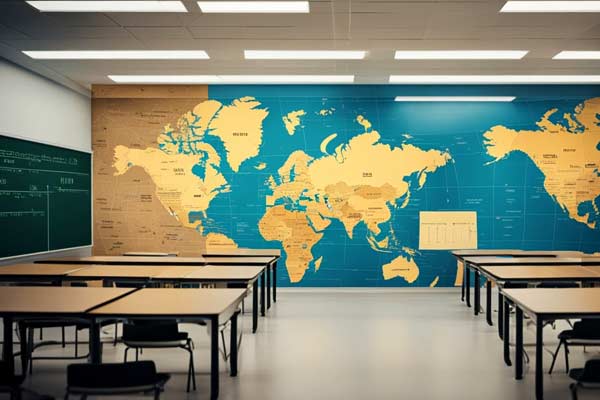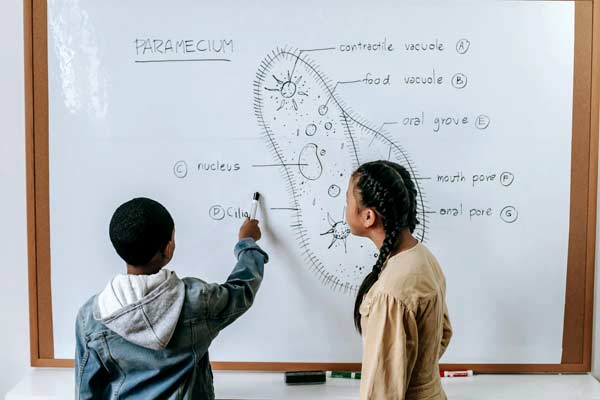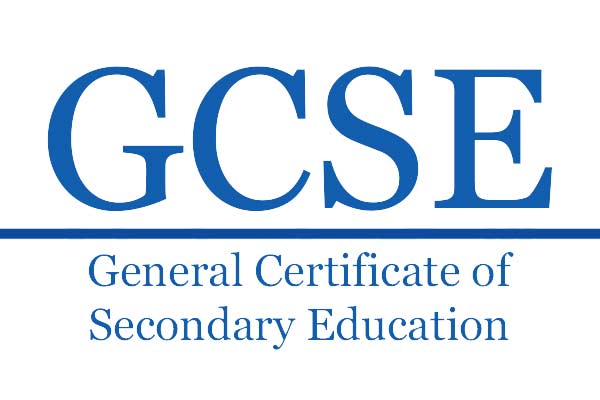Is Arabic GCSE Hard? A Comprehensive Overview of the Exam Difficulty
Arabic is a complex language, and for those who are not native speakers, it can be particularly challenging to learn.
The General Certificate of Secondary Education (GCSE) in Arabic is a qualification many educational institutions and employers worldwide recognize.
However, many students wonder if the Arabic GCSE is difficult to pass and whether it is worth the effort.
The difficulty of the Arabic GCSE depends on several factors, including the student’s level of proficiency in the language, their ability to understand and apply complex grammar rules, and their ability to memorize many vocabulary words.
For non-native speakers, the Arabic GCSE can be particularly challenging, as they may not have the same level of exposure to the language as native speakers do.
However, with the proper preparation and study habits, students can pass the Arabic GCSE and achieve a good grade.
Understanding GCSE Arabic
GCSE Arabic is a subject that covers Modern Standard Arabic and is offered by Pearson-Edexcel, a world-renowned education provider. It is a structured method of learning Arabic and provides a recognized qualification upon passing the exam.
The GCSE Arabic qualification assesses the student’s ability to communicate effectively in Arabic and understand the Arabic language and culture.
The GCSE Arabic exam comprises four components: listening, speaking, reading, and writing. Each component tests the student’s ability to use Arabic differently.
For example, the listening component assesses the student’s ability to understand spoken Arabic, while the speaking component assesses their ability to communicate effectively in spoken Arabic.
GCSE Arabic grades span from 1 to 9, where 9 represents the highest achievement, and 1 indicates the lowest performance. Passing starts at grade 4, and a strong performance is at grade 7 or higher. While the exam is challenging, you can do well with good prep and study.
🌟 Hey Students! 🚀 Ready for the ultimate experience? Join us on Studentsinside.com's Facebook, YouTube, WhatsApp, and LinkedIn. Click now for tips, fun, and success vibes! 🌈✨ #StudentLife #JoinUs
Studying GCSE Arabic provides a range of benefits. It adds an extra dimension to the student’s skills profile, which can impress potential employers.
Improving your Arabic skills helps you land jobs in global companies and makes you more attractive for work abroad. Plus, it opens opportunities for future work or study in an Arabic-speaking country.
The Arabic Language
Arabic Alphabet
Arabic is a Semitic language that is written from right to left. It uses a unique alphabet consisting of 28 letters, each with different forms depending on its position in a word. The Arabic alphabet is cursive, meaning the letters are joined when written.
Arabic Script
The Arabic script is one of the world’s most beautiful and intricate writing systems. It is also one of the oldest, with roots dating back to the 4th century CE. The script is used for Arabic and other languages such as Persian, Urdu, and Pashto.
Masculine and Feminine in Arabic
Arabic is a gendered language with nouns, adjectives, and masculine or feminine verbs. This means that speakers of Arabic must learn the gender of each word to use it correctly in a sentence.
Modern Standard Arabic
Modern Standard Arabic (MSA) is the standardized version employed in formal contexts like literature, media, and education.
The language used in educational institutions and universities holds official status in many countries throughout the Middle East and North Africa.
Challenges in Learning Arabic
Learning Arabic is a challenging task, and it can be challenging for many people. Here are some of the main challenges that learners may face:
Difficulty in Reading Arabic
One of the biggest challenges in learning Arabic is reading the language. Arabic is written from right to left, which can confuse learners who are used to reading from left to right.
Additionally, Arabic script has 28 letters, and some of these letters have different forms depending on their position in a word. Furthermore, Arabic script often omits vowels, making reading and understanding words challenging.
Complexity of Arabic Grammar
Arabic grammar is another challenge for learners. The language has a complex system of verb conjugations, noun declensions, and grammatical rules that can be difficult to master.
For example, Arabic has different verb forms for past, present, and future tenses, and each form has several variations depending on the subject and object of the verb.
Additionally, Arabic has a dual form for nouns and verbs, which can confuse learners who are used to singular and plural forms.
Arabic Vocabulary
Arabic vocabulary can also be challenging for learners. Arabic has a rich vocabulary, but many words have multiple meanings depending on their context.
Additionally, Arabic has many loanwords from other languages, such as Persian, Turkish, and French, making it challenging to understand the meaning of some words.
Furthermore, Arabic has several dialects that differ significantly, and some words may have different meanings or pronunciations depending on the dialect.
Comparing Arabic with Other Languages
Arabic Vs. English
When it comes to learning a new language, English is often considered one of the easiest languages to learn due to its widespread usage and relatively simple grammar rules.
Arabic stands out as one of the most formidable languages to master, thanks to its intricate grammar, unfamiliar script, and challenging pronunciation.
One of the biggest differences between Arabic and English is the writing system. English uses the Latin alphabet, which is familiar to most people.
In contrast, Arabic uses a script from right to left with a different form for each letter depending on its position in a word. This can make it difficult for English speakers to read and write Arabic.
Mastering Arabic presents an additional hurdle due to its intricate grammar rules. Unlike the straightforward grammar of English, Arabic entails a sophisticated framework involving verb conjugation, noun declension, and sentence structure.
This complexity can challenge English speakers striving to grasp and apply Arabic grammar accurately.
Arabic Vs. Spanish
Spanish is another popular language that is often compared to Arabic. While both languages have unique challenges, Spanish is generally considered easier to learn than Arabic.
One reason is that Spanish uses the same alphabet as English, making it easier for English speakers to read and write Spanish.
Another reason why Spanish is considered easier to learn than Arabic is because it has a simpler grammar system. Spanish has fewer verb tenses and noun declensions than Arabic, making it easier for English speakers to understand and use Spanish grammar correctly.
However, despite these differences, learning Arabic can be a rewarding experience for those who are willing to put in the time and effort.
Arabic ranks as the fifth most spoken language worldwide and is commonly used in various Middle Eastern and North African countries. Learning Arabic can lead to exciting travel opportunities, job prospects, and connections with diverse cultures.
Studying for GCSE Arabic
There are a few key things to remember when studying for GCSE Arabic.
Content of GCSE Arabic
The GCSE Arabic exam covers various Arabic language and culture topics. Some of the critical areas that students will need to be familiar with include:
- Speaking and listening: Students will need to be able to understand and respond to spoken Arabic, as well as hold conversations in the language.
- Reading: Students will need to be able to read and understand texts written in Arabic.
- Writing: Students must be able to write in Arabic in response to prompts and longer compositions.
- Grammar and vocabulary: Students must have a solid grasp of Arabic grammar and a strong vocabulary to succeed on the exam.
- Culture: Students must be familiar with various aspects of Arabic culture, including traditions, customs, and history.
GCSE Arabic Past Papers
Working through old exam papers is A great way to prepare for the GCSE Arabic exam. They show you what to expect on the test and help you determine which parts to focus on while studying.
Several resources are available online where students can find past papers for the GCSE Arabic exam. Some of these resources include:
- The official website of the exam board that administers the GCSE Arabic exam.
- Online forums and communities where students can share tips and advice on studying for the exam.
- Websites and apps that offer practice tests and quizzes to help students prepare.
Examining past papers’ questions and answers is crucial for effective study. This practice enables students to grasp the common question patterns that may appear in the exam and develop optimal strategies for answering them.
The Cultural Aspect of Arabic
Learning Arabic is not just about mastering the language but also about understanding the rich cultural heritage of the Arab world.
Arabic in Media
Arabic is a widely spoken and official language of over 20 countries. This means that Arabic media is a rich cultural and linguistic material source.
Arabic newspapers, television shows, and radio programs can be used to help students improve their listening and comprehension skills, as well as to expose them to different accents and dialects.
Arabic Music and Food
Arabic music and food are an integral part of the Arab culture. Music is used to celebrate special occasions, such as weddings and religious festivals, and is an important means of expressing emotions.
Arabic food is known for its variety and richness, reflecting the diverse cultural influences that have shaped the Arab world.
Incorporating Arabic music and food into the GCSE Arabic curriculum can help students develop a deeper appreciation of culture and language.
Arabic and Travel
Arabic-speaking countries are popular travel destinations, and learning Arabic can enhance the travel experience.
Arabic is the language of hospitality, and knowing a few basic phrases can go a long way in connecting with locals and understanding the culture.
Exploring Arabic-speaking countries lets students apply their language skills in real-life scenarios, providing richer insight into local culture.
Incorporating cultural aspects of Arabic into the GCSE Arabic curriculum can help students develop a deeper appreciation for the language and its cultural heritage.
The Global Importance of Arabic
Arabic is spoken by more than 400 million people globally and is one of the most influential languages worldwide.
Officially recognized in 26 countries, including the United Arab Emirates, Saudi Arabia, Egypt, and Iraq, it holds a significant position in the Middle East and beyond.
Arabic is also one of the six official languages of the United Nations and an essential language for international diplomacy, business, and cultural exchange.
The global dimension of Arabic is reflected in the fact that it is spoken across a vast geographical area, from the Middle East to North Africa and from the Arabian Peninsula to the Horn of Africa.
Arabic is also essential for the global Muslim community, as it is the Quran and the Islamic faith language.
In recent years, there has been growing recognition of the importance of Arabic as a global language.
As the world becomes more interconnected, speaking Arabic is increasingly seen as a valuable skill for professionals in various fields, including business, government, and academia.
The international and global dimension of Arabic is also reflected in the fact that it is taught in schools and universities worldwide. For example, the Arabic GCSE is one of the main ways students can learn the language in the UK.
This reflects the recognition that Arabic is an essential language for the UK’s international relations and business and cultural exchange.
Additional Resources for Learning Arabic
Mastering a new language presents challenges, yet it becomes rewarding with the appropriate tools. Explore these extra materials to aid your Arabic learning journey and prepare you for the upcoming GCSE exam.
Language Learning Apps
Discover a bunch of apps to learn Arabic on the fly. Try Duolingo, Rosetta Stone, or Babbel for fun exercises that boost your reading, writing, listening, and speaking skills.
Online Courses
Online courses can also be an excellent resource for learning Arabic. Websites like Udemy and Coursera offer courses from beginner to advanced levels.
Many of these courses are taught by native Arabic speakers and provide interactive lessons and quizzes to help you practice your skills.
Downloadable Resources
There are also many downloadable resources available that can help you learn Arabic. Websites like ArabicOnline and MadinahArabic offer free downloadable resources, including worksheets, flashcards, and audio recordings.
These resources can significantly supplement your regular coursework and help you practice your skills outside the classroom.
Language Exchange Programs
Language exchange programs can be great for practicing your Arabic skills with native speakers.
Websites like Tandem and HelloTalk allow you to connect with Arabic speakers worldwide and practice your language skills through text, voice, and video chat.








